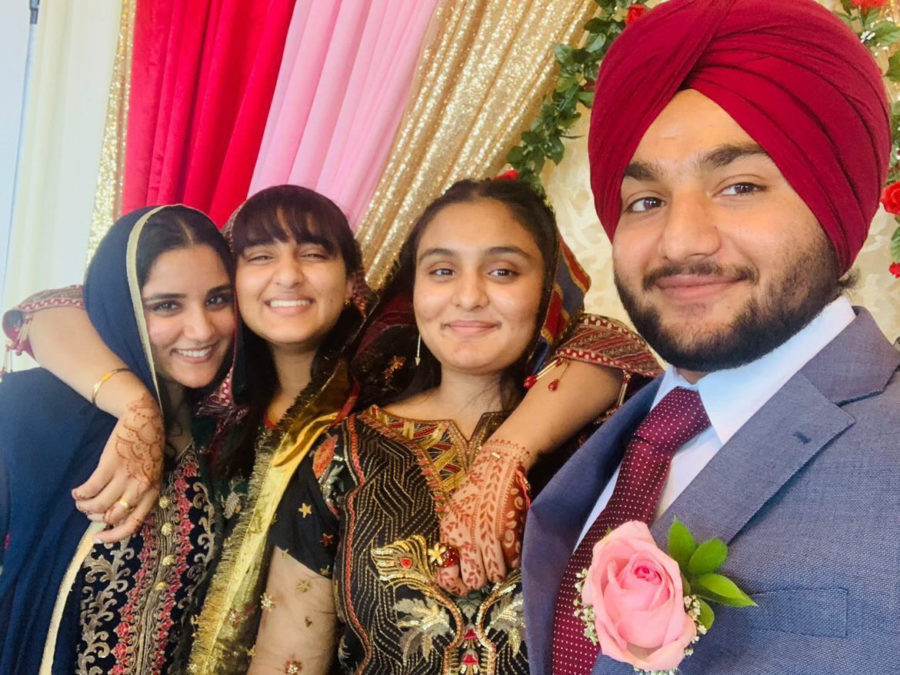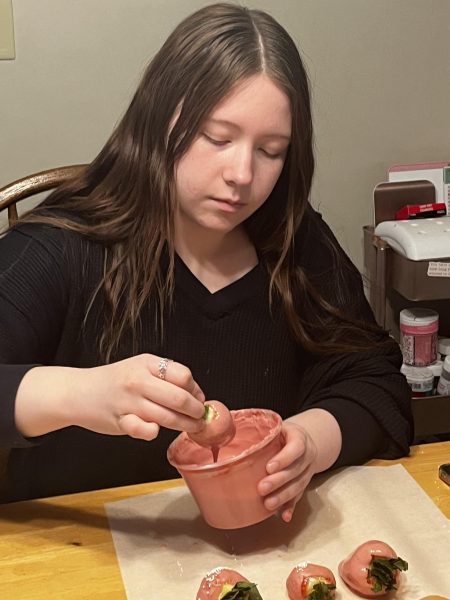To be a Sikh
Sophomore finds meaning in her religion
Sophomore Mohit Baidwan, both her older and younger sisters and her cousin attend a wedding on August 2021. This is one of the rare moments where Baidwan is dressed in her traditional clothing.
Sophomore Mohit Baidwan’s father cut his hair and stopped wearing his turban for safety reasons during the anti-Sikh riots in 1984. Baidwan’s grandfather on her mother’s side was detained and kidnapped by people impersonating police officers, and they later had to pay a ransom fee to get him back.
These experiences have made an impact on the meaning of being a Sikh. It’s not only a religion for Baidwan and her family, it’s a lifestyle.
“Being a Sikh person does not necessarily mean tying a turban or doing all the rituals,” Baidwan said. “It’s how you feel on the inside and treat others.’’
Sikhism is a monotheistic religion that originates from the region of Punjab that extends within Pakistan and India. Guru Nanak founed Sikhism in the 15th century. There are 10 Gurus or prophets in total to guide the Sikh Community and write scriptures in the Guru Granth Sahib, the holy book for Sikhs.
For Baidwan, many Sundays are spent at the Gurdwara, which is the gathering place for Sikh people. Everyone is very quiet because of an unspoken rule of only whispering if needing to communicate with others. Whenever the Baba Ji, who is the leader of the congregation, is reciting the prayer or holy scriptures, everyone must be silent.
“Sometimes I feel overwhelmed and when you go to the Gurdwara, everything feels better,’’ Baidwan said.
Respecting others is essential to Baidwan’s life because she says that understanding everyone’s differences is important.
Sikhs have been a minority within Hindu India and Islamic Pakistan. Due to living with people of other faiths for a long time, Sikhs have understood how to be tolerant toward others. For many Sikhs, speaking up for the oppressed is important because many Gurus were killed in the past.
Before she was born, her parents came to the U.S. Around this time, many Sikhs were looked upon as terrorists because of 9/11. Whether it was having beards, their skin color, or wearing turbans, it made her parents and older sister targets of discrimination.
‘‘A lot of people mistook us for Muslim. First of all, that’s not correct,’’ Baidwan said.
Although her family does not currently wear traditional Sikh clothing, such as a turban or hair covering, she still values modesty in her clothing. During the summer, the most she will do is wear short-sleeve shirts.
She visited the Golden Temple over spring break, one of the holiest sites in Sikhism in Punjab, India. She had to wear a scarf that covered all of her hair and a long sleeve shirt. She prayed on the outside of the shrine and put her head on the ground, also known as prostration.
“I was actually connected to my religion and everything my parents taught me,’’ said Baidwan.
If she has children in the future, she hopes that they can follow Sikh values. Even if they do not choose to be Sikh, she has no problem because tolerance is what matters.

Hello, SHS students! My name is Sarah Bennett, and I am a senior and in my second year of The Journal. I love giving the news and spreading information...











